Explore the evolving landscape of lion hunting in South Africa, from recent bans on captive breeding to the impact on hunters, conservation, and local communities.
Lion hunting in South Africa has long been a tradition and controversial focal point. With the government’s recent decision to phase out captive breeding of lions for hunting, the country’s hunting industry stands at a crossroads. This shift has sparked intense debate among hunters, conservationists, and local communities who rely on this sector for their livelihoods. Understanding these new policies’ implications on the industry, economy, and conservation is essential as they unfold.
Historical Context of Lion Hunting in South Africa
Lion hunting has deep roots in African history, dating back centuries when hunters faced lions in the wild as an emblem of bravery and survival. Traditionally, lion hunting was not just for sport; it was an integral part of cultural practices among various African communities, symbolizing strength and respect for the natural world.
Over the years, lion hunting evolved with the introduction of “captive-bred” lions, specifically raised in controlled environments for hunting purposes. The emergence of commercial lion breeding transformed South Africa’s hunting industry, attracting international hunters and generating significant revenue. This change created jobs but also raised ethical and ecological concerns, as the practice often blurred the lines between conservation and commercialization.
Ethical Debates on Captive Breeding
The practice of captive lion breeding has sparked ethical debates worldwide, dividing conservationists, hunters, and animal rights groups. Critics argue that breeding lions in captivity solely for hunting purposes undermines conservation by reducing lions to commercial products, and failing to support wild populations. Animal rights organizations claim that captive-bred hunting fails to contribute to the preservation of wild lions and, in some cases, exacerbates poaching by normalizing the killing of lions for profit.On the other hand, proponents within the hunting community contend that captive-bred lions offer a controlled alternative that minimizes the need to hunt wild lions. Hunters argue that the captive breeding industry allows them to pursue hunting traditions without impacting the already vulnerable wild lion population, which numbers only around 3,500 in South Africa. They emphasize that regulated hunting can coexist with ethical practices, as long as stringent rules are in place.
Economic and Social Implications for Local Communities
South Africa’s lion-hunting industry is a substantial economic driver, particularly in rural areas where job opportunities are scarce. In regions like Limpopo and Free State, captive-bred lion hunting and related activities support thousands of jobs, from animal care to hospitality, helping to uplift local economies. By phasing out the captive breeding sector, the government may be jeopardizing these communities, which rely on the economic benefits tied to the industry.
With the decline of this industry, hunters and breeders warn of the negative ripple effects, as fewer jobs and reduced revenue could destabilize rural economies. There are calls within the community to ensure that the government develops alternative livelihood strategies for those who depend on this industry. Proposed solutions include training programs for ecotourism, nature conservation, and sustainable wildlife management to ensure these workers transition smoothly into new roles.
Alternatives to Captive-Bred Lion Hunting
In light of the ban, hunters, breeders, and conservationists are considering alternative approaches that could satisfy both ethical and conservation concerns. Sustainable wild hunting models, where hunters pursue only older or non-breeding wild lions, have been suggested as a way to reduce ecological impact while continuing traditional hunting practices.
Another proposed alternative is the expansion of regulated ecotourism ventures that promote non-lethal wildlife encounters. These experiences, which allow tourists to view and photograph lions in natural habitats, offer an opportunity for local communities to derive income from lion populations without relying on hunting. However, transitioning to ecotourism requires substantial investment in infrastructure and training, and success varies depending on regional tourism interest and accessibility.
Global Influence and Policy Changes
South Africa’s lion-hunting policies are under significant global scrutiny. Many countries, including the United States, Australia, and members of the European Union, have introduced or are considering restrictions on importing lion trophies. These measures have amplified calls for more ethical practices, as the international community increasingly pressures South Africa to reform its hunting regulations.
Domestically, South Africa’s government appears to be aligning its wildlife policies with international conservation standards, potentially to maintain its reputation as a global conservation leader. For the hunting community, this shift is seen as both an opportunity and a challenge. On one hand, hunters recognize the need to evolve practices to align with public sentiment. On the other hand, there are concerns that these policies might over-prioritize international opinion at the expense of local realities and livelihoods.
Comparative Examples and Case Studies
South Africa is not alone in facing challenges around lion hunting and conservation. In Tanzania, for example, conservationists and hunters have worked together to implement quotas that protect lions while allowing limited hunting. This approach has helped balance conservation efforts with traditional hunting practices.
Additionally, in Botswana, a temporary hunting ban on elephants and lions was lifted in 2019 to address overpopulation issues that led to human-wildlife conflict. These cases highlight the complexities of conservation policy and show that tailored, region-specific approaches can address both conservation goals and local needs effectively.
Conservation Success Stories and Hunters’ Contributions
Hunters have long been part of the conservation landscape in Africa. Funds generated from ethical hunting practices are often reinvested into conservation initiatives, helping to maintain natural habitats and protect other wildlife species from poaching and over-exploitation. South African hunters have successfully collaborated with conservation organizations on projects that manage wildlife populations and create sanctuaries for endangered species.
The role of hunters in conservation is often overlooked, yet their contributions have historically helped protect Africa’s vast wilderness. As South Africa transitions to a new phase of conservation policy, leveraging the hunting community’s expertise could foster innovative solutions that uphold conservation while respecting cultural heritage.
The Path Forward: Balancing Conservation with Hunting Heritage
The future of lion hunting in South Africa remains uncertain, but one thing is clear: the hunting industry and conservationists must work together to find sustainable solutions that benefit wildlife and local communities. The new regulations mark a shift toward ethical wildlife management, yet they underscore the need for policies that consider both conservation goals and economic realities.
As South Africa redefines its relationship with lion hunting, hunters play an essential role in shaping a balanced approach that respects tradition, preserves natural resources, and promotes responsible wildlife management. Collaborative efforts between government bodies, hunters, and conservation organizations will be crucial to ensuring a future where wildlife thrives alongside a sustainable hunting industry.

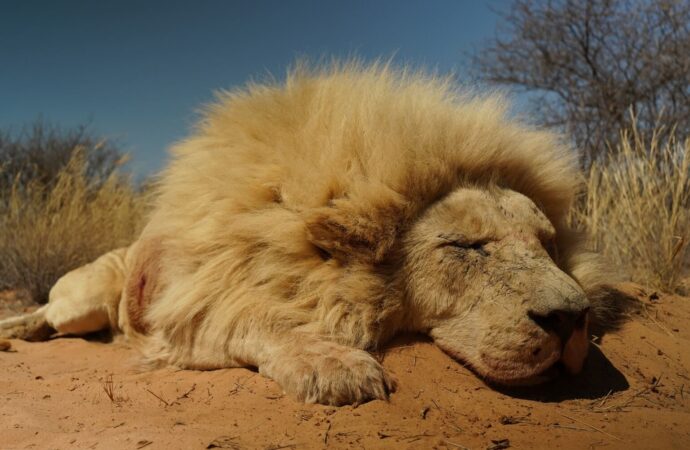


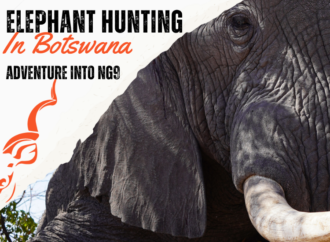



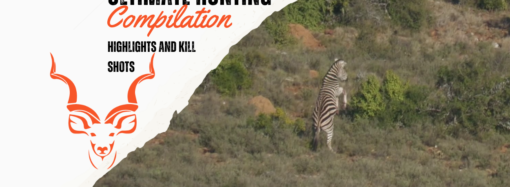






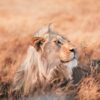
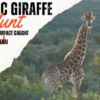

Leave a Comment
You must be logged in to post a comment.